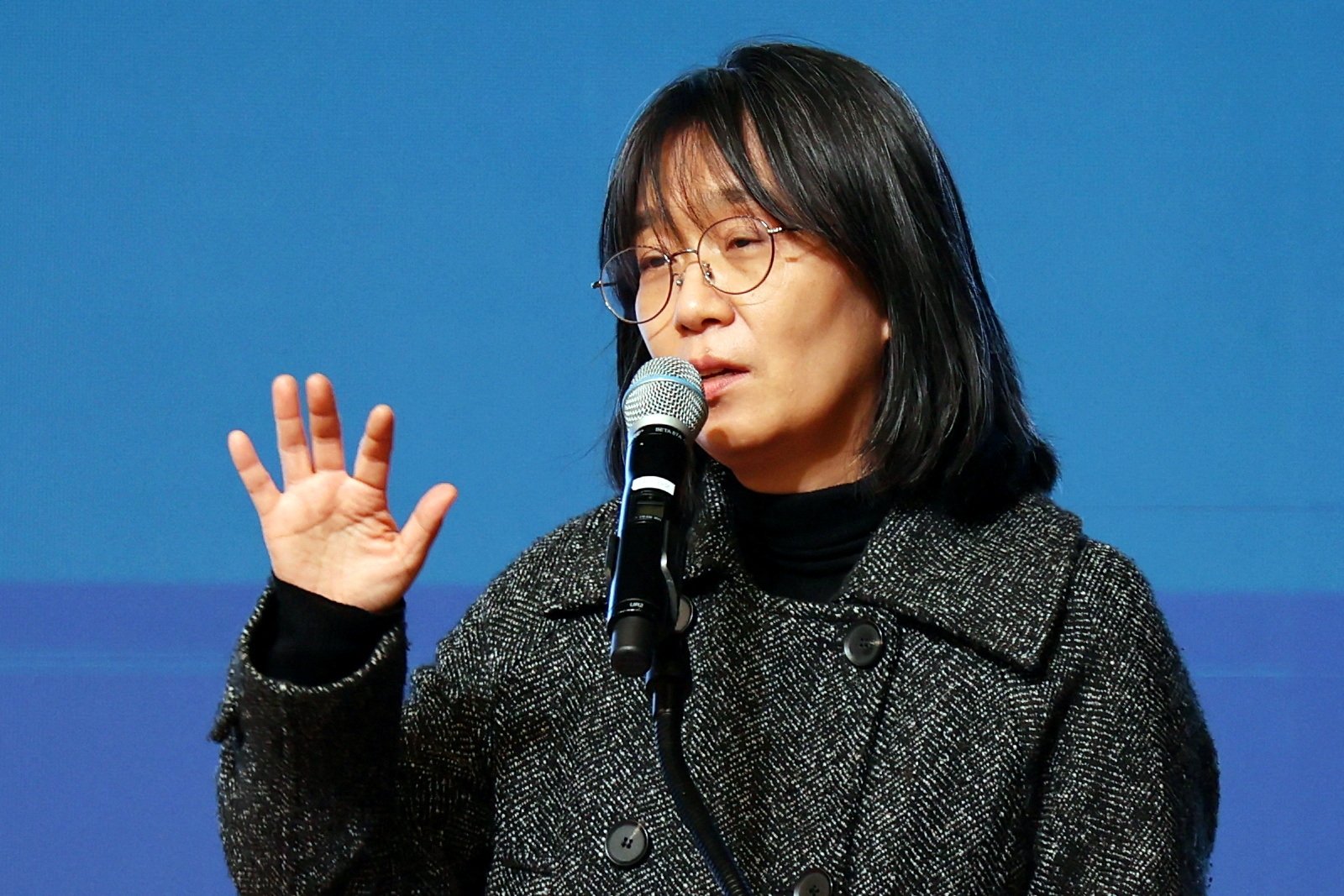
Han Kang: A Literary Luminary Celebrated with the 2024 Nobel Prize
In a moment that resonates deeply within the literary world, South Korean author Han Kang has been awarded the prestigious 2024 Nobel Prize in Literature. This significant honor recognizes her extraordinary ability to weave “intense poetic prose” that confronts the complexities of historical trauma and illuminates the fragility of human existence. At 53, Han Kang has emerged as a vital voice in contemporary literature, gaining international acclaim for her unique storytelling and profound thematic explorations.
Han’s literary journey began with poetry, debuting in a South Korean magazine, but it was her venture into prose that truly captured attention. Her breakout work, “The Vegetarian,” published in 2007, has been heralded as a transformative piece in modern literature. This novel tells the haunting tale of a woman who, after experiencing disturbing dreams about human cruelty, decides to abandon meat and pursue a life that resembles a more “plant-like” existence. The book garnered the Man Booker International Prize in 2016, marking a pivotal moment in Han's career and paving the way for her international recognition.
Also Read:- Ali Wong and Bill Hader: A Romantic Comedy in Real Life
- Richard Martineau's Brave Announcement: Battling Prostate Cancer
Notably, Han Kang is the first South Korean author to receive the Nobel Prize in Literature, a remarkable achievement that adds to the prestige of her already illustrious career. Since the award's inception in 1901, only 18 women have been honored, underscoring the significance of her win. The Nobel Prize committee praised her for her unique ability to explore the interconnectedness of the living and the dead, the physical and the spiritual, highlighting her poetic and experimental style.
A central theme in Han's works is the exploration of trauma and the human condition, as evidenced in her 2014 novel, “Human Acts,” which reflects on the 1980 Gwangju Uprising in South Korea. This historical event, marked by violent government repression, serves as a backdrop to a narrative that intertwines the stories of victims and witnesses, revealing how the scars of such events can linger through generations. The Nobel Committee’s chair, Anders Olsen, emphasized how Han’s prose serves as a poignant counterforce to the brutal realities of power, evoking empathy and reflection in readers.
Although her protagonists often embrace female perspectives, Han skillfully navigates male narratives, allowing her to delve deeper into themes of gender, societal expectations, and human fragility. This complexity adds layers to her storytelling, inviting readers to engage with the diverse voices that populate her narratives. Her work resonates on a universal level, exploring the core of what it means to be human amidst suffering and resilience.
As the announcement of her Nobel Prize echoed around the globe, it was revealed that Han had just enjoyed an ordinary evening with her son when she received the life-changing call from the Swedish Academy. This humility is emblematic of her character and artistic journey. With the prize comes a cash award of 11 million Swedish kronor, approximately $1 million, a recognition not only of her past work but also an encouragement for her future endeavors.
So, Han Kang’s receipt of the Nobel Prize in Literature is not merely a personal triumph; it signifies a momentous recognition of South Korean literature on the global stage. Her ability to confront the most delicate aspects of humanity with grace and poetic finesse continues to inspire readers worldwide. As she prepares for the Nobel Prize ceremony in Stockholm on December 10, we anticipate that her work will further illuminate the intricate tapestry of human experience, inviting more readers into her profound and transformative literary world.
Read More:

0 Comments